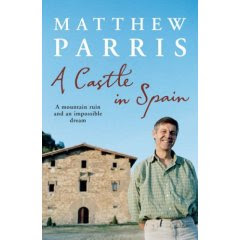Who really wrote this collection of letters?
Also in today's blog
Peter Pan and Peter Davies, publisher
A friend, who belongs to the book group of which I'm a member during the winter months in Spain, tells me that the book they have to read before the next group lunch is Letters of an Indian Judge to an English Gentlewoman.

"Have you ever heard of it?" she emailed. "There are no reviews on Amazon which is a bit unusual, especially as both D and S [two other members of the group] have a copy of the book."
I replied that I felt sure Google would offer some interesting info. However of the 70 links they provide the majority are to second-hand booksellers' sites offering copies of the book.
Apparently it was first published in 1934 by Peter Davies Ltd. Another edition came out in 1978, and the book was re-published by Mandarin in 1992.
Here are two extracts from a long piece about the book at The British Empire.
"This book purports to be a series of beautiful and eloquently written letters passing to an 'unknown' English Gentlewoman from an Indian Judge. It charts a fascinating literal friendship that covers the late days of the Imperial Raj. The letters began after a single chance encounter between the pair at a party: The wife of an English Colonel and the young Indian judge started a correspondence that was to last a lifetime. The letters only travel in one direction, but for imperial historians, that direction is almost certainly the more interesting of the two. They manage to cast light on all sorts of interesting areas of Imperial India, Burma and Britain by a highly gifted and literate primary witness."
"The letters chart the rise of the career of an Indian in the imperial judicial system with all the pitfalls and advantages that his position bestows upon him. He is initially posted to Burma where, as a young man, he is exposed to both the opportunities that Imperialism could offer an educated man like himself, but also the limitations and expectation of his position in a strictly heirarchical society. He finds that he is only welcome at the European clubs when he is accompanied by his European boss. If he tries to enter by himself, he feels the prejudices and antipathy of the ruling elite. He also works under what he regards as the best and worst of Imperial Britons."
No doubt you noticed the word "purports" in the first paragraph. At a site called Obsidian Wings, I read -
"…we are perturbed when we discover, for example that Letters of an Indian Judge to an English Gentlewoman was in fact written by an Englishman."
I couldn't find the source of the Obsidian Wings discovery, so perhaps will email the team running the site.
Nearly forgot : there's another page at The British Empire some readers might find useful.
It deals with – "Explorers, bureaucrats, soldiers, artists, scientists, writers, rich, poor, advocates and adversaries all played their part in the history of the British Empire. This section seeks to give brief descriptions of the acts and deeds of as wide a variety of individuals as possible. You may also find information on individuals connected to particular colonies or units in the relevant Maproom or Armed Forces Section."
Peter Pan and Peter Davies, publisher
Peter Davies, the first publisher of Letters of an Indian Judge was, apparently, the model for J M Barrie's "boy who never grew up", Peter Pan.
"It’s April 5, 1960…the day of the death and suicide of the respected publisher Peter Llewelyn Davies, founder of Peter Davies Ltd., considered an “artist among editors.” "
That is an extract from a novel called Kensington Gardens
by Rodrigo Fresán translated from the Spanish by Natasha Wimmer and published by Farrar, Straus and Giroux in June last year.
Apparently Peter Davies hated being associated with Peter Pan and eventually threw himself in front of a London Underground train.







